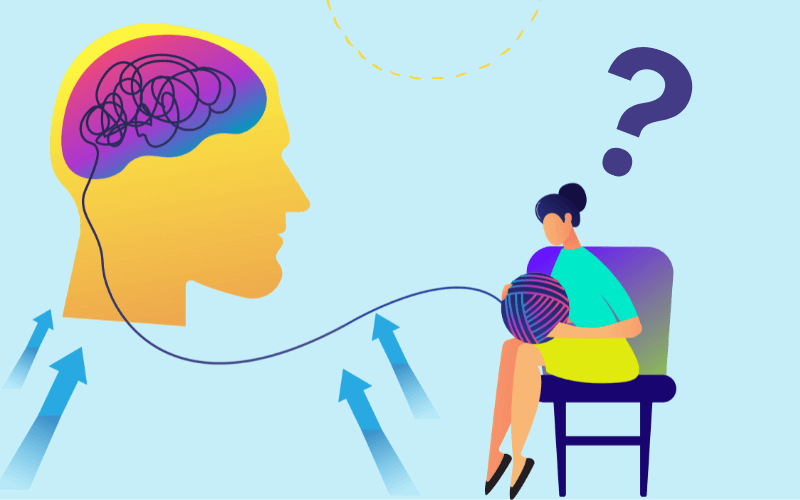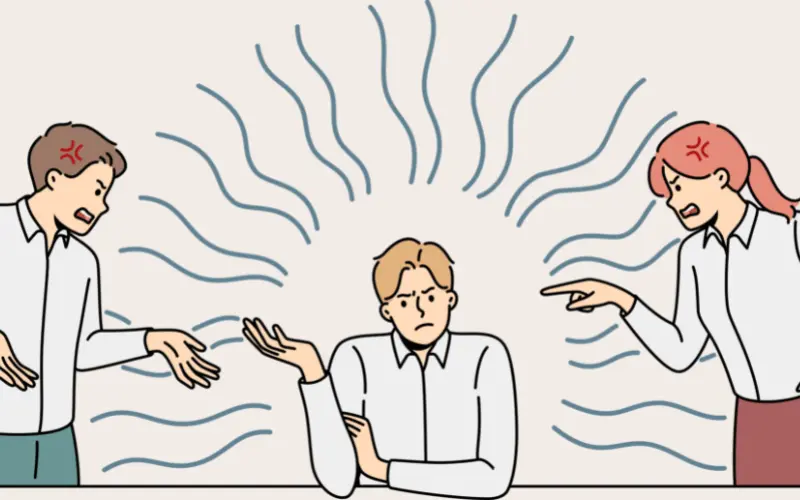CBT has been seen as one of the important psychotherapies in treating various mental health conditions, such as depression, anxiety disorders, behavioral issues, and more. In this blog today, we are going to discuss what is cognitive behavioral therapy, what are some of its different facets, and how it can be helpful in various mental health conditions. So, let’s get started!
No doubt, CBT has gained enormous popularity only in the last couple of decades, as people slowly started understanding its effectiveness and importance for various mental health issues. But, it is not some new kind of therapy for sure, according to the history of psychology. It has been around for ages.
Let’s see how CBT was invented and came into a bigger picture!
The History Of Cognitive Behavioral Therapy!
Following studies, treatment for mental problems using behavioral methods has been there since the 1900s. Early advocates of behavioral therapy included Watson, Skinner, and Pavlov. According to them, the main concept behind behavioral therapy was that it is entirely possible to measure, train, and even modify one’s behavior. Our behavior is often shaped by the responses to our surrounding factors, as per their theories.
The first-ever concept of behavioral therapy emerged way back in the 1940s when many WWII soldiers came back from the war. And they had confronted the emotional challenges they faced during the war. Afterwards, it slowly started the buzz of CBT in the psychotherapy realm. It also challenged the mainstream psychoanalytic therapy of that time and is regarded as the “first wave” of CBT.
According to that, the demand for effective short-term therapy for depression and anxiety coincided with a surge in the behavioral study on how people learn to behave and react emotionally to experiences in their lives. And it makes all the difference in their brain cognition.
Several empirical research of how cognitions affect behavior and emotions were conducted in the 1960s. The cognitive revolution is the term often used for this. It is later characterized as the “second wave” of CBT, as it emphasizes the importance of conscious thinking in psychotherapy.
So, this was a bit about the history of CBT and how it developed as one of the effective treatments in psychotherapies.
What is Cognitive Behavioral Therapy?
Cognitive behavioral therapy is all about noticing the automatic negative thoughts generated in our minds and replacing them with the most realistic and helpful cognition.
As we know, negative emotions can worsen our mental health, increasing the chances of depression, anxiety, and other mental health issues.
Through CBT, one understands how to spot their negative bias cognition and how to replace and challenge them with more helpful and practical thoughts.
It was about what is cognitive behavioral therapy. Now, let’s understand some of the main characteristics of it.
What Are Some Of The Main Characteristics Of CBT?
Growing new mind skills-
CBT is very much about learning and practicing new mental skills. It’s about understanding how your mind works when you get faced with your emotional triggers. By comprehending them, you can easily notice your brain’s usual negative response and how to alter it in order to make a positive shift in your brain cognition.
Problem-solving approach-
For people dealing with depression and anxiety, it may become very hectic to come up with problem-solving facets. However, with CBT, they get trained to identify their issues and how to come up with the respective solutions. After a couple of sessions, they find it easy to create a problem-solving attitude for themselves.
Self-monitoring is key-
Self-monitoring is a key element in CBT. It helps you in tracking your symptoms, condition, and triggers over time, and how using CBT skills, you are able to conquer your fears and response. Maintaining a journal is a good example of this. This way, you can share your progress easily with your therapists.
Goals should be defined-
If someone dealing with anxiety, they might be taught some coping skills by their therapists, and their goals will be well-defined. For example, someone dealing with social anxiety may find it hard to go to certain places initially at the beginning of the therapy sessions. But, he or she and the therapists have decided to reach a goal for them of fearlessly going to those places within the next six months. So, this kind of goal definition is a main feature of CBT.
Recovery can be slow but gradual-
It goes without saying that changes happen gradually and not suddenly. Great things take time, as they say. Similarly, in CBT, things might seem overwhelming in the beginning. But slowly, with the help of your therapists, you will learn new mental skills, which afterwards make it very easy to make progress at a gradual level.
What Are The Mental Health Conditions CBT Can Help You With?
CBT gets used to treat a wide range of conditions like:
Depression
Eating disorders
Panic attacks
Personality disorders
Phobias
Anxiety
Bipolar disorder
Addiction
Anger issues
In addition to mental health conditions, CBT has been found to help people cope with the following mental health associated aspects-
Insomnia
Low self-esteem
Relationship problems
Stress management
Divorce or break-ups
Grief or loss
Chronic pain or serious illnesses
So, these were some of the psychological conditions in which CBT can be of great help.
With the right strategies and practice, CBT can be really helpful for people dealing with mental health issues. However, it is always better to decide for yourself. Some people believe more in medicinal help in comparison to therapies. And it is entirely understandable. It is your health and your choice! It is always recommended to seek professional diagnosis and analysis before coming to any conclusion related to your mental health.
We hope you like this blog post on what is cognitive behavioral therapy! Do share your thoughts about CBT in the comment section below. Would love to hear from you people!











